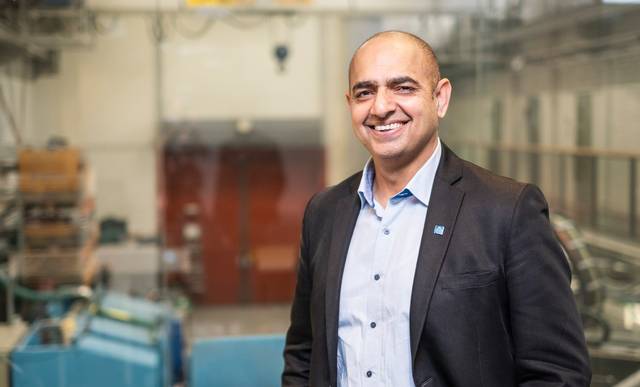“It is high time for companies to rethink. “The manufacturing sector has since the industrial revolution created welfare while significantly damaging the planet’s ecosystem, says Amir Rashid and continues: “If the ecosystem is damaged by enterprise, it can also be restored by enterprise. But this requires a changed attitude and great commitment.”
Amir Rashid and his team have been involved in two major EU-funded projects, Res-CoM and ReCiPSS , both of which are about circular finance and closing the loop by design. By working with four European manufacturing companies, the team developed tools and methods for the manufacturing sector to complete the cycle and take responsibility for a circular life cycle.
“Sustainability as a business model generates positive effects on several levels. When you focus on the life cycle of its products and its value, you keep down the amount of waste to handle, which leads to reduced pollution and more business opportunities”, says Amir Rashid.
KTH’s current H2020 project ReCiPSS handles large-scale implementation of circular manufacturing systems in real industrial environments through two pilot companies, Gorenje in Slovenia and Bosch Automotive Aftermarket in Germany. Amir Rashid and the team help companies at the beginning of the production chain to think about what value their products have, how that value is delivered to their users and where the products will end up after use.
An important part of this project is to develop information management platforms to be used to track products and their components after use, and to connect and monitor products during use. This will help companies develop business models that take full advantage of the entire product value, by properly designing products and the distribution chain.
“Through several international and local initiatives, including the Circular Economics Initiative at KTH . we help companies to completely change their way of thinking. Instead of trying to work sustainably, sustainability is integrated into the business model itself and in manufacturing”, says Amir Rashid.
Companies that build their business model on sustainability are different from companies that rely on sustainability work afterwards, where the circle is concluded by chance rather than by the design of the business model.
“Those who stick to a traditional business model need to rethink. Companies that hope for this now will be very competitive in the future”, says Amir Rashid.
FACTS:
ResCoM and ReCiPSS stand for Resource Conservative Manufacturing and Resource-Efficient Circular Product-Service-Systems. These projects are two of many that Amir and his team at KTH’s Department of Industrial Production have worked on.
The team is a group of more than 30 doctoral students, researchers and research engineers whose research is funded both through national grants and EU funding. Much of the research is based on close collaboration with industry and real-life case studies.

